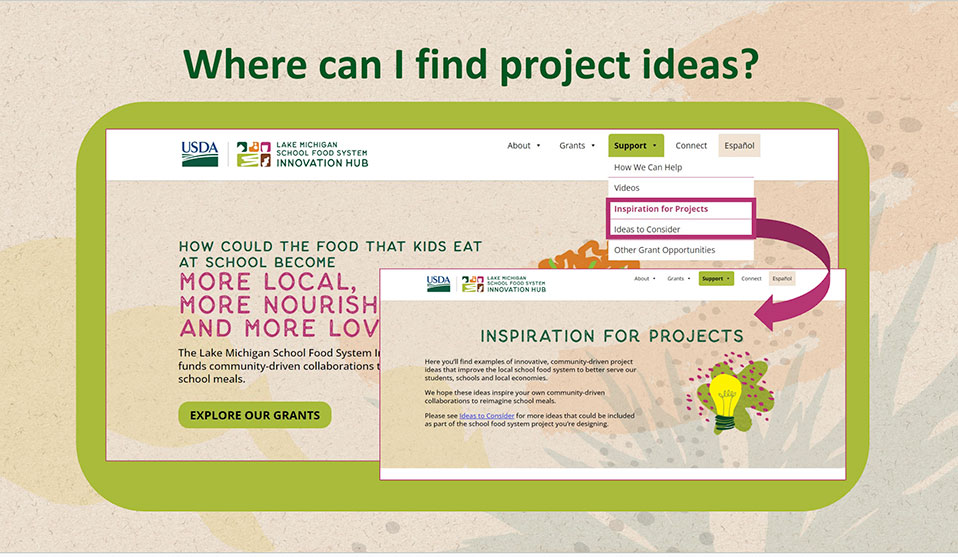The Innovation Hub is a collaboration led by the Illinois Public Health Institute (IPHI) along with State Leads in four states: Illinois, Indiana, Michigan and Wisconsin. The Innovation Hub welcomed Action for Healthy Kids (AFHK) as a partner because they are perfectly suited to strengthen and support the Innovation Hub’s goals with expertise in sharing best practices across the country that address the whole child’s health.
AFHK began to serve in the role of training and technical assistance, with special attention to collaborative evaluation and assessment. AFHK established an evaluation committee that included IPHI, Chicago Food Policy Action Council and State Leads in each of the four States. The evaluation committee provided feedback on evaluation materials, like the focus group protocol; they also supported the creation of a survey that eventual grantees completed. To be responsive to the needs as identified by those who participated in the focus groups, AFHK generated an Ideas List, a vital resource for the grant applicants to utilize in creating their projects. In this partnership, our focus is transforming school meals.
Before developing the Request for Applications, AFHK conducted a mixed method needs assessment to identify the key challenges, innovations and required technical assistance that increases the availability of nourishing, healthy and local food in the school system across the four states. Thirty-seven (37) school food professionals, farmers, producers, distributors, industry experts and community-based organizations from the four states shared their perspectives and ideas on what innovation, training and technical assistance are needed to bolster the school food system. This resulted in the Ideas List, a resource for applicants to draw inspiration for the creation and implementation of their projects. The Ideas List is shared on the Lake Michigan School Food System Innovation Hub website through two pages: Inspiration for Projects and Ideas to Consider.
The innovation of the Ideas List lies not only in its capturing of what is needed to advance the regional school food system and marketplace, but also in its accessible format, which includes both small and large-scale ideas tailored to the specific needs within each sector. This approach ensures that applicants can build from existing knowledge when designing their projects and allow them to easily align their initiatives with the identified regional and state needs and opportunities.
Seven focus groups were held with 37 individuals representing community organizations, industry partners, K-12 food professionals, farmers, producers and distributors. Focus group participants discussed successes they had observed in efforts to provide local, nutritious food that best reflects our region’s families and communities. They also shared how they would utilize grant dollars for this purpose. These discussions were analyzed for the Ideas List.
PRACTICAL OUTCOMES
- Collectively, 92 ideas were identified through focus groups, key informant interviews and literature findings. These ideas were used to create the Inspiration for Projects and Ideas to Consider pages.
- 21 training and technical assistance topics were identified through focus groups, key informant interviews and literature findings.
KEY TAKEAWAYS FROM OUR PROJECT
Centering accessibility is an innovative approach
- It is important to share findings in accessible formats for all audiences. Our program’s “Ideas List” is organized by the type of project and the sectors involved on the grant’s official website. These ideas are regularly promoted and were also printed out and shared interactively at our 2024 Healthy Meals Incentive Mini-Summit.
- The Ideas List was turned into “bite-sized” information with clear and concise language
- Grantee projects aligned with long-term outcome aimed at promoting local food procurement, fostering community and youth engagement, and encouraging cultural shifts in food practices
Additionally, the outcomes emphasize supporting food system leaders, enhancing state and key partner relationships, and improving school food nutrition.
To conclude, we anticipate that our assessment, evaluation, training and technical assistance will amplify our grantees’ approaches to uplifting priority communities. Our innovative approach intends to share best practices in the work we embarked on with this partnership.

